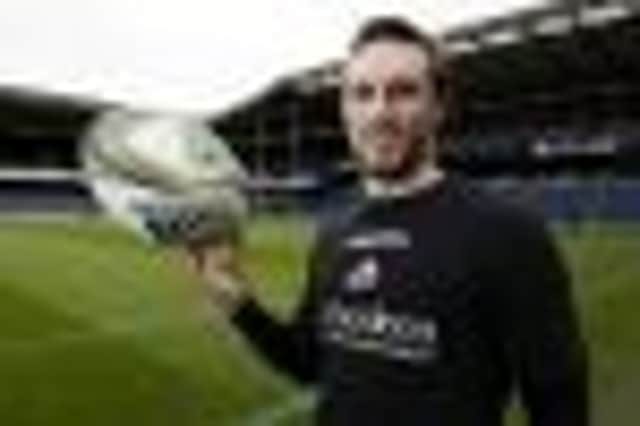Allan Massie: Heineken can keep bringing the best out of Edinburgh


But first of course they have to get past Edinburgh, and, though confident of doing so, they are also wary. This is because Edinburgh’s cup form so belies their league record this season as to make prediction a fool’s game.
Actually it’s Edinburgh’s league form that has been ridiculous – ridiculously poor, indeed. It is perhaps more reasonable to conclude that the real Edinburgh has turned up only in the cup. Certainly the Heineken, to adapt its advertising slogan, has touched parts that other matches haven’t.
Advertisement
Hide AdAdvertisement
Hide AdUlster start favourites and their coach Brian McLaughlin says they are happy with that. They are a tough strong team, and one not without flair. Any side that can beat Munster in a quarter-final at Thomond Park is formidable. Their defensive performance in the second half was outstanding. McLaughlin has done a great job integrating their South African players without diluting the characteristic Ulster tenacity. Still they are missing their All Black tighthead John Afoa, who is suspended, have had a couple of other injury worries, and seem to have been uncertain who should start at fly-half, Ian Humphreys or Paddy Jackson.
In contrast, Edinburgh enjoyed home advantage in their quarter-final. They made excellent use of it and thoroughly deserved to beat Toulouse. It was probably the best performance by any Scottish side since the national team won in Dublin two years ago. Their one poor Heineken performance was away to Cardiff, but they have gained in confidence and coherence since that day. The most impressive feature of the Toulouse game was the control they established. It showed that they can play in more than one style.
The forecast for Dublin is wet and a bit blowy, which may suit Ulster. They look the better equipped for either an arm-wrestle or a kicking game. Edinburgh will surely want to move them about the field, but probably only after they have made a few one-pass drives close to the scrum or breakdown.
One of coach Michael Bradley’s achievements is to have made his team more adaptable, marrying their wide off-loading game with the close-quarter intensity and control of his native Munster. If Edinburgh can get Ulster on the back foot and keep them there, and then stretch their defence, they have good enough finishers out wide, in Tim Visser and Lee Jones, to take advantage of any opportunities. Moreover, though Greig Laidlaw doesn’t have the greatest length of kick from hand, he does kick very astutely in attack, and recognises that putting the ball behind a flat-lying defensive line is often the way to score tries in modern rugby.
Yet Edinburgh will have the chance to do that only if the forwards, and especially the front five, can do as well as they did against Toulouse. Anything less than that and it will be Edinburgh that have to play the game on the back foot, and find themselves often living off scraps. Only if there is at least parity up-front can Edinburgh’s back-row of Ross Rennie, Natani Talei and David Denton play the running and off-loading game at which they excel.
One worry concerns restarts. There are usually ten or a dozen of these in most games, more if you include drop-outs from the 22, They are absolutely vital, as the former England and Lions centre Will Greenwood argued in an article earlier this week. Muff the opposition restart after you have scored, and you risk throwing away the advantage you have just gained. The same is true in reverse when you have to restart. Jim Telfer used to say he liked teams that kicked off only once in a match – a counsel of perfection, and something that rarely happens. Even if you prevent the opposition from scoring tries, it’s a rare game that doesn’t offer both sides the opportunity to kick penalties. In that context Edinburgh must be careful. Ruan Pienaar can kick goals from well within his own half. Likewise they must surely this time keep 15 players on the field for the full 80 minutes. The two yellow cards against Toulouse might well have cost them the match. Some of the young Edinburgh players are enjoying success early in their careers, and one hopes they have already acquired a taste for it. Others have waited a long time to get this far in the Heineken – notably Allan Jacobsen and Mike Blair, both of whom have given Edinburgh tremendous service over the years.
Blair is moving on at the end of the season. So this is perhaps his last or second last game for Edinburgh. It would be the send-off he deserves if it’s not his last, and if instead he takes the field at Twickenham in the final against either Clermont or Leinster.